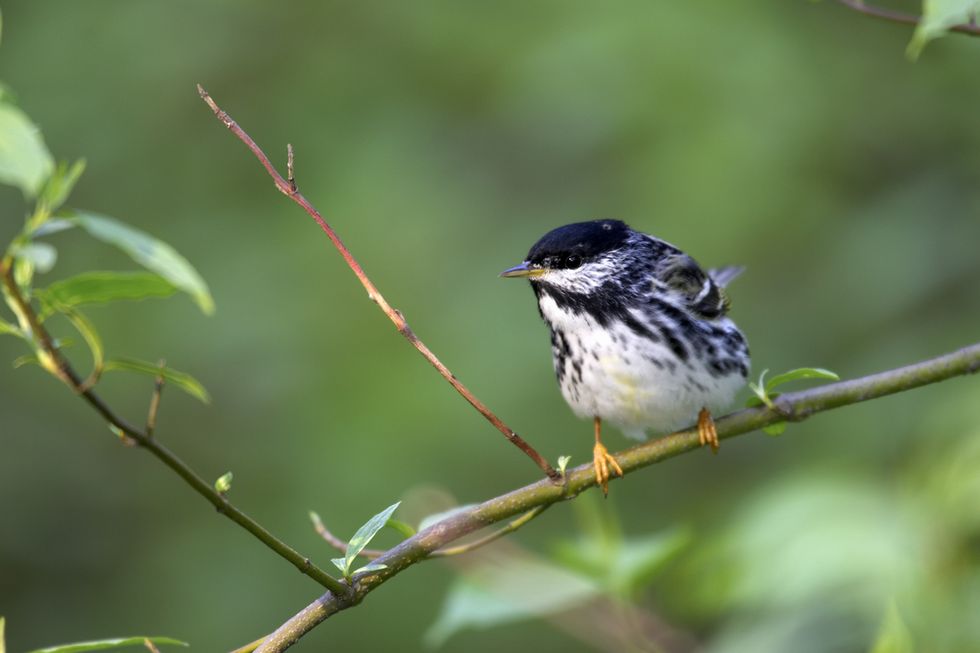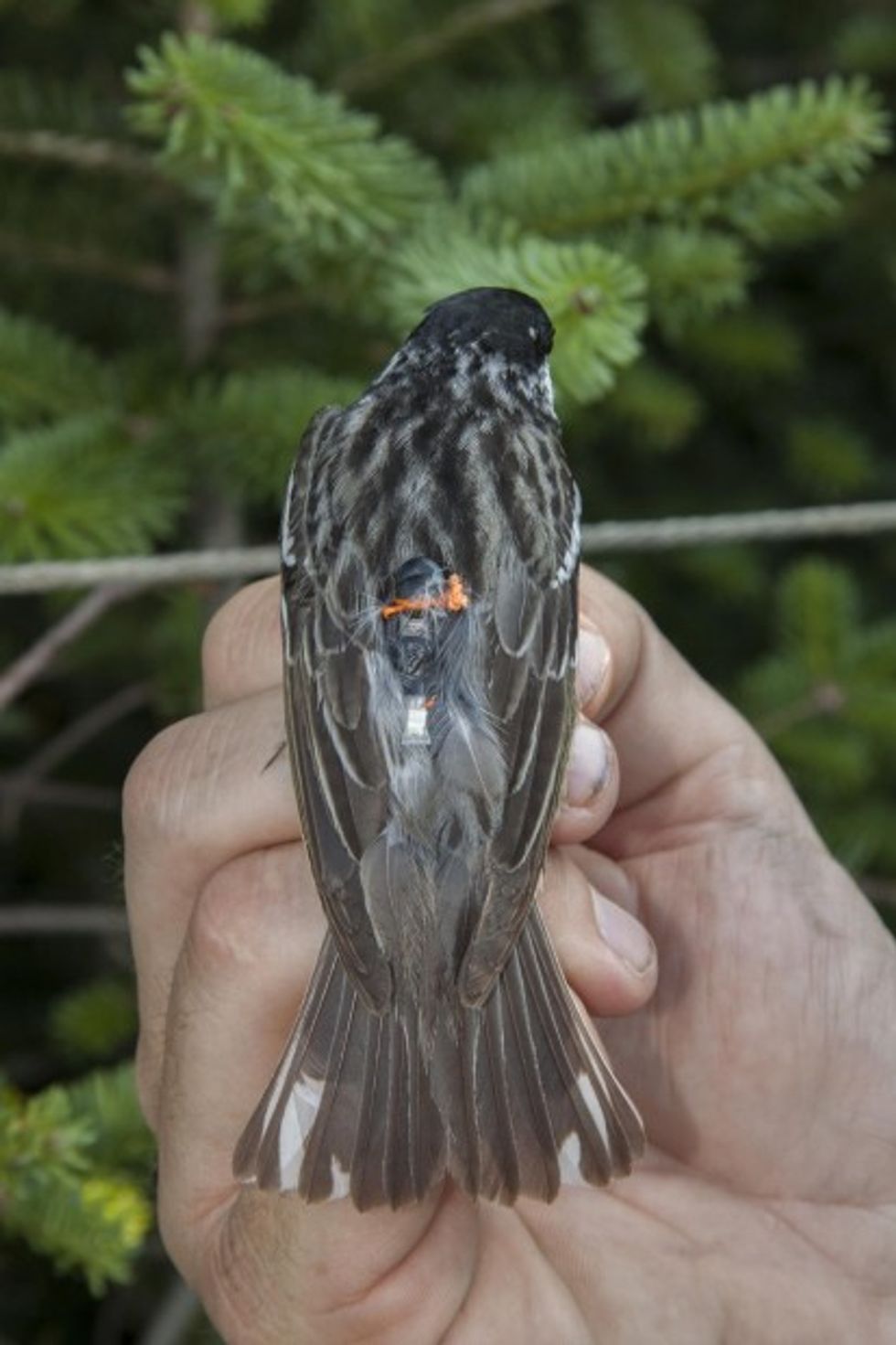
© 2025 Blaze Media LLC. All rights reserved.
"One of the longest nonstop overwater flights ever recorded"
MONTPELIER, Vt. (TheBlaze/AP) — A nonstop flight over the Atlantic Ocean might not seem like that big of a deal, but for a tiny songbird that makes a 1,700-mile migratory journey, it's downright "extraordinary."

A new study provides "irrefutable evidence" that the blackpoll warbler flies anywhere from 1,410 to 1,721 miles nonstop in two to three days from the northern U.S. and Canada to the Caribbean as part of its winter migration.
"For small songbirds, we are only just now beginning to understand the migratory routes that connect temperate breeding grounds to tropical wintering areas," Bill DeLuca with University of Massachusetts, Amherst, said in a statement. "We're really excited to report that this is one of the longest nonstop overwater flights ever recorded for a songbird, and finally confirms what has long been believed to be one of the most extraordinary migratory feats on the planet."
Scientists had long suspected that the blackpoll warbler had made its journey to the Caribbean over the ocean, but the study that began in the summer of 2013 when scientists attached tracking devices to the birds was the first time that the flight has been proven, according to results published Wednesday in the United Kingdom in the journal Biology Letters.
"It is such a spectacular, astounding feat that this half-an-ounce bird can make what is obviously a perilous, highly risky journey over the open ocean," said Chris Rimmer of the Vermont Center for Ecostudies, one of the authors.
The warblers, known to bulk up by eating insects near their coastal departure points before heading south, are common in parts of North America, but their numbers have been declining. "Now maybe that will help us focus attention on what could be driving these declines," Rimmer said.
Knowing how the blackpoll warblers migrate helps scientists know more about the implications of changing climate, said Andrew Farnsworth, a research associate at the Cornell Lab of Ornithology who specializes in migration biology and was not involved in the study.
"What happens if birds aren't able to fuel sufficiently to make this kind of flight because of habitat fragmentation and habitat loss in New England or the Canadian Maritimes?" Farnsworth said. "How much energy do they need and if they don't get it, what happens?"
A number of bird species fly long distances over water, but the warbler is different because it's a forest dweller. Most other birds that winter in South America fly through Mexico and Central America.
In the summer of 2013, scientists tagged 19 blackpolls on Vermont's Mount Mansfield and 18 in two locations in Nova Scotia. Of those, three were recaptured in Vermont with the tracking device attached and two in Nova Scotia.
Four warblers, including two tagged in Vermont, departed between Sept. 25 and Oct. 21 and flew directly to the islands of Hispaniola or Puerto Rico in flights ranging from 49 to 73 hours. A fifth bird departed Cape Hatteras, North Carolina, and flew nearly 1,000 miles before landing in the Turks and Caicos before continuing on to South America.
On their return journeys north, the birds flew along the coast.
—
Front page image via Shutterstock.
Want to leave a tip?
We answer to you. Help keep our content free of advertisers and big tech censorship by leaving a tip today.
Want to join the conversation?
Already a subscriber?
more stories
Sign up for the Blaze newsletter
By signing up, you agree to our Privacy Policy and Terms of Use, and agree to receive content that may sometimes include advertisements. You may opt out at any time.
Related Content
© 2025 Blaze Media LLC. All rights reserved.
Get the stories that matter most delivered directly to your inbox.
By signing up, you agree to our Privacy Policy and Terms of Use, and agree to receive content that may sometimes include advertisements. You may opt out at any time.






